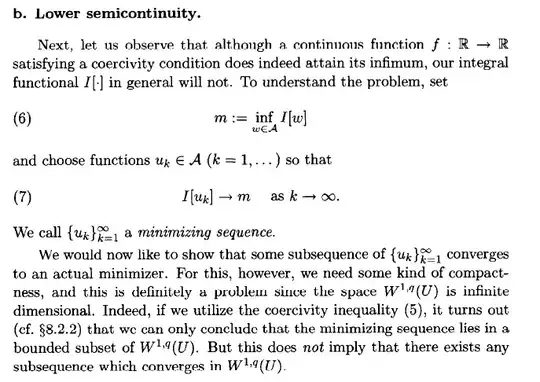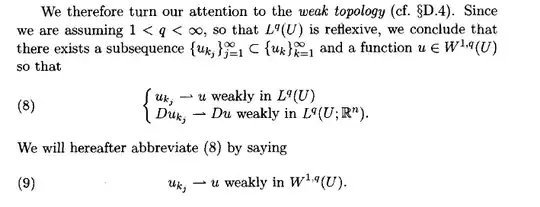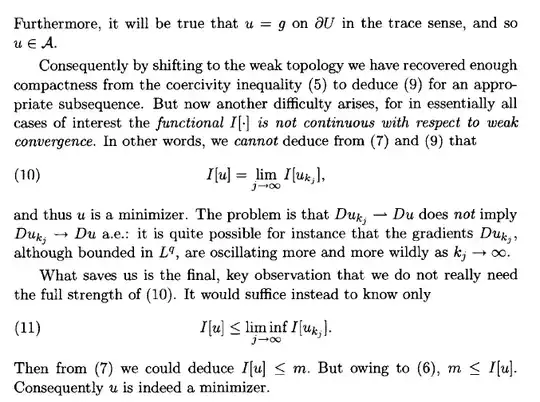In Chapter 8: Calculus of variations of Evan's Partial Differential Equations, Evan writes as follows:



I am wondering about the last paragraph where he says that
knowing $I[u] \leq \liminf_{j\to\infty} I[u_{k_j}]$ is sufficient to claim that $u$ is a minimizer.
Why do we use $\liminf $ here instead of $\limsup$?
Woulnd't knowing $I[u] \leq \limsup_{j\to\infty} I[u_{k_j}]$ is sufficient as well to conclude that $u$ is a minimizer since we know $lim_{k\to\infty} I[u_k] = m = \liminf_{j\to\infty} I[u_{k_j}] = \limsup_{j\to\infty} I[u_{k_j}]$ ?
If so, since $\liminf_{j\to\infty} I[u_{k_j}] \leq \limsup_{j\to\infty} I[u_{k_j}]$, wouldn't it be "easier" to show
$$I[u] \leq \limsup_{j\to\infty} I[u_{k_j}]\text{ ?}$$
than it is to show
$$I[u] \leq \liminf_{j\to\infty} I[u_{k_j}]\text{ ?}$$